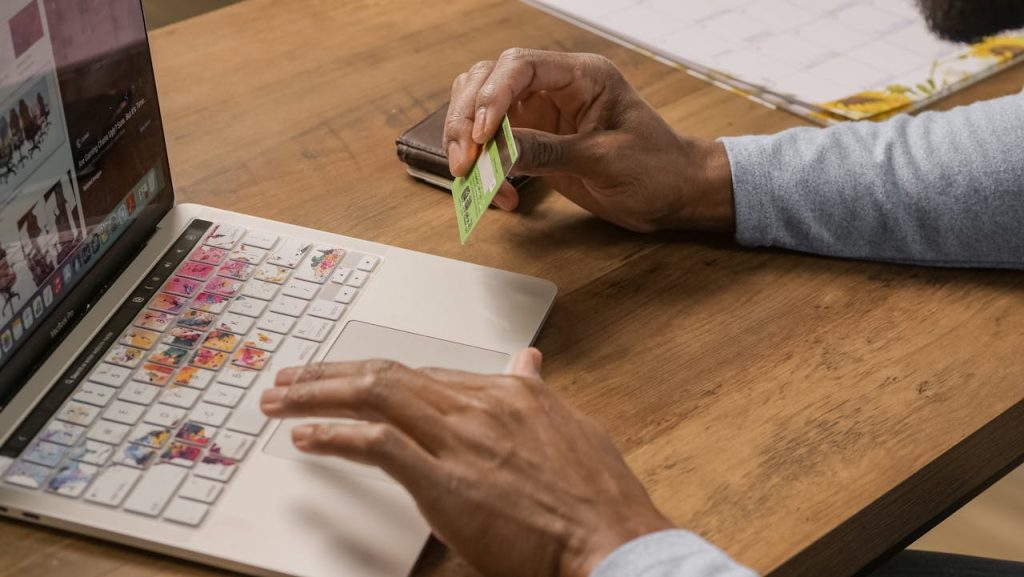
It’s half way through my credit card cycle, and my balance this month has been exceptionally low. I love the feeling of having a low credit card balance, especially having rebounded from credit mistakes in the past. Having the money to pay off my credit card in full each month, while also having a surplus of cash for other items, such as savings is real nice. Being self-aware, I also know that my spending patterns change throughout the year, especially with increased spending around the holidays.
Keeping your credit card payments low is a key strategy for maintaining a healthy financial life, especially if you’re a young adult or a former athlete transitioning into a new career. Credit cards can be convenient, but without the right strategies, they can also lead to unnecessary debt. Here are five practical ways to keep your balance low and your payments manageable.
How to Keep Credit Card Balance Low
1. Set a Budget and Stick to It. The first step to keeping your credit card payments low is to have a clear budget. Identify your monthly income, expenses, and how much you can afford to spend on your credit card without going overboard. By sticking to this budget, you’ll avoid overspending and accumulating unnecessary debt.
One approach is to allocate a specific percentage of your income to your credit card spending. For example, if you make $1,000 a month, you might decide that only $200 of that will go toward your credit card expenses. This discipline helps prevent impulse purchases and ensures you stay within your means.
2. Use Your Card for Essentials Only. A common mistake many young adults and former athletes make is using their credit cards for non-essential purchases. It used to be easy for me to swipe my card for items like takeout, new clothes, or a night out… which quickly added up. Instead, limit your credit card use to essentials like groceries, gas, or recurring bills.
By prioritizing necessary expenses, you can avoid racking up a balance that you can’t pay off in full each month. This practice not only keeps your balance low but also helps you build a strong credit history by showing consistent and responsible usage.
3. Pay More Than the Minimum Payment. When you only pay the minimum amount due each month, you’re primarily covering interest and a small portion of your principal balance. This approach extends the life of your debt and results in higher payments in the long run. To avoid this, aim to pay more than the minimum payment.
For example, if your minimum payment is $50, try to pay $100 or more. Even small extra payments can make a significant difference in reducing your balance and saving on interest over time. This strategy also ensures you’re reducing your debt more quickly and keeping your overall payments lower.
4. Take Advantage of Balance Transfer Offers. If you have existing credit card debt with high interest rates, consider taking advantage of balance transfer offers. Many credit cards offer introductory periods with 0% interest on balance transfers for a set amount of time. This can be a great way to reduce your interest payments and pay down your balance faster.
For instance, if you have $1,000 in debt with an 18% interest rate, transferring that balance to a card with 0% interest for 12 months could save you hundreds of dollars in interest payments. Just be sure to pay off the balance before the promotional period ends to avoid getting hit with a high-interest rate afterward.
5. Set Up Automatic Payments and Alerts. Life gets busy, and it’s easy to forget to make a payment or even lose track of your spending. Setting up automatic payments ensures that your credit card bill is paid on time every month, avoiding late fees and interest rate hikes.
Additionally, most credit card companies allow you to set up alerts that notify you when you’re approaching your credit limit or when your payment due date is coming up. These alerts help you stay on top of your spending and ensure that you’re not overspending or missing payments.
By following these five strategies, you can keep your credit card payments low and avoid the stress of mounting debt. Whether you’re a young adult just starting out or a former athlete transitioning to a new chapter in your life, these tips can help you take control of your finances. Remember, financial discipline today will pay off in the future, helping you build a strong foundation for long-term financial success. Additionally, implementing these practices won’t just keep your payments low—it’ll also help you develop healthy financial habits that will benefit you for years to come.